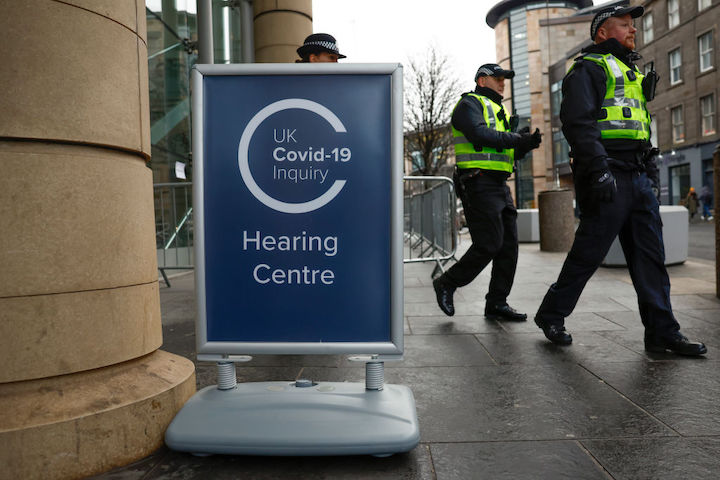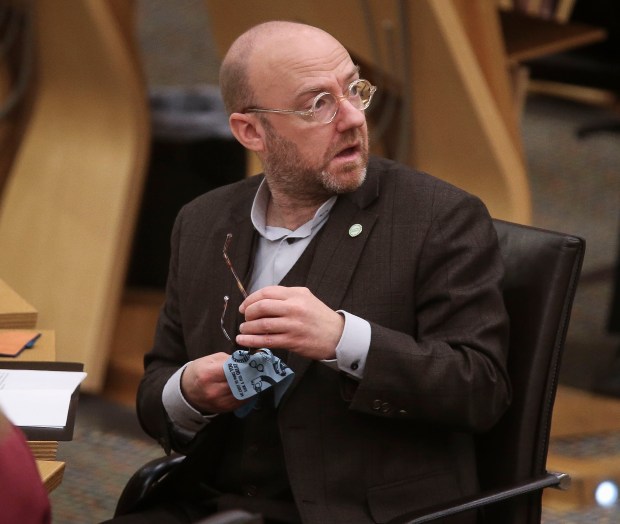The Covid Inquiry’s recent Scottish sojourn brought several weeks of bad headlines for the SNP. One revelation got less attention than others but struck me as more significant than most, so I wrote about it for Coffee House.
That revelation was an email chain dug up by the inquiry dating from the first summer of the pandemic. It contained a discussion about which countries should be added to the list of ‘travel corridor’ nations. In one email, a senior civil servant argued for Spain to be added to the list because ‘there is a real possibility they will never approve EU membership for an independent Scotland’ otherwise.
If that seems like quite the leap, know that the possibility of Spain vetoing an independent Scotland’s accession to the European Union has long been a source of anxiety for Scottish nationalists. The email, addressed to then top civil servant Ken Thomson (but cc-ed to the offices of Nicola Sturgeon, Humza Yousaf and others), was sent on 19 July 2020. On 23 July 2020, Spain was added to the list. (It was removed again three days later because of its high Covid prevalence rates.)
Yousaf told the Scottish parliament in February: ‘To suggest that the decision on Spain was made for any other reason than epidemiology is, I am afraid, a fantasy.’ However, a report in today’s Scottish Mail on Sunday casts doubt on that. (Full disclosure: I write a weekly column for its sister paper, the Scottish Daily Mail.)
The newspaper says officials were sent a note on 20 July 2020, the day after the email in question, outlining plans to open a travel corridor with Spain. According to the newspaper, the memo ‘explicitly stated that public health data was not the only consideration in reopening travel’, and the story quotes a reference in the missive to ‘the impact on Scotland’s external relationships, including with Spain’. For its part, the Scottish government says its decisions were ‘based on the UK government’s data’.
Rather a lot has come out during the Covid Inquiry that is at odds with the image projected by Sturgeon and lapped up by the London media: that of the smart, sensible government that, unlike the hated Tories, listened to the experts.
There was the confirmation that Sturgeon deleted her WhatsApp messages from the pandemic, despite having promised to retain them, and that her second-in-command, John Swinney, had manually erased all of his messages with Sturgeon from that time period.
There were communications from Thomson in which he encouraged officials to ‘clear’ their messages because they were ‘discoverable under FOI’. ‘Plausible deniability are my middle names,’ he told them.
We learned that Scotland’s response to Covid-19 was led by a shadowy group called the ‘Gold Command’, headed by Sturgeon and comprising her loyal lieutenants. Meetings took place without any minutes recorded. The Scottish cabinet wasn’t entirely sidelined: three months into the pandemic, it was discussing a fresh campaign for independence that would use the pandemic to its advantage.
But the Spanish travel story, to my mind, is particularly damning. A senior Scottish government official advised a change in the rules for one country based, in part, on that country’s ability to hinder a major policy goal for an independent Scotland. Worse, the Scottish Mail on Sunday story would appear to suggest that this constitutional dimension played some part in the decision to open a travel corridor with Spain.
Wherever the truth lies, this episode is another example of the utter folly of devolution. Far from lancing the boil of nationalism, all this Blair-era blunder did was build up the apparatus of incipient statehood, apparatus which it arrogantly believed would always be controlled by Labour, but which was quickly taken over by the SNP. Predictably, the Nationalists have used that apparatus as a battering ram, directing part of the British state to undermine it overall.
If Labour deserves contempt for its dangerous idealism in setting up a Scottish parliament, the Tories warrant white-hot hatred for entrenching and expanding devolution long after its constitutional perils had become apparent. But both parties would rather listen to ultra-devolutionists in their ranks and to on-message thinktankers and commentators than confront the truth: that every advance for devolution in Scotland has been an advance for the cause of independence for Scotland. The SNP may be a formidable opponent, but Westminster is its own worst enemy.
Got something to add? Join the discussion and comment below.
Get 10 issues for just $10
Subscribe to The Spectator Australia today for the next 10 magazine issues, plus full online access, for just $10.




















Comments
Don't miss out
Join the conversation with other Spectator Australia readers. Subscribe to leave a comment.
SUBSCRIBEAlready a subscriber? Log in